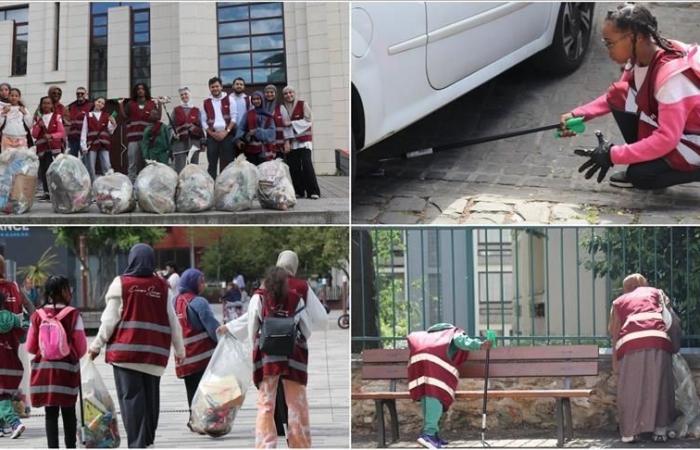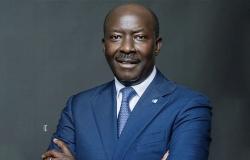In 19 cities in France, including Massy, Muslims concerned with the environment organized a cleaning campaign. This event, called “4th inter-mosques march for cleanliness”, took place on May 3 and 4. Initiated by 19 mosques, including the great Mosque of Massy in Île-de-France, this action aims to raise public awareness of the importance of cleanliness.
The Great Mosque of Massy, known to be the country’s first ecological mosque, was at the heart of this initiative. participants, many of whom, spent about three and a half hours collecting waste around mosques and in the surrounding streets. In support of this event, a citizen generously distributed cakes and cookies to the volunteers involved.
The mayor of Massy, Nicolas Samsoen, expressed his gratitude to the participants for their efforts during this community activity.
Amelle Miri, a volunteer at the Great Mosque of Massy, explained to an AA correspondent that the youth commission of the mosque has been organizing cleaning actions in the city for two years. “We generally carry out these actions between the hours of prayer to maximize our efficiency,” she said. Miri added that the main objective is to transmit the message of the importance of “cleaning the world and taking care of it”.
Bilal Abdelouahed, a 26 -year -old who participated, stressed the importance of such actions: “Islam attaches great importance to cleanliness”. He also noted that these initiatives illustrate the need to take care of our environment. According to Islam, any embarrassing element on the public road must be withdrawn, he added.
Safa Mrabet, alongside his two children, explained that this event was an opportunity to show the importance of maintaining a clean environment, in accordance with religious lessons: “this is part of our religion”. It insisted on the need to instill in younger generations the importance of not throwing out a bit to preserve our environment.
The Great Mosque of Massy, built between 2010 and 2019, is distinguished by its optimized use of energy resources. Thanks to modern installations such as double insulation, a soil heating system and the use of rainwater, it represents a sustainable construction model funded by the donations of Muslims in Massy and France, for a total cost of 4.5 million euros.
(This article is a rewriting of a text initially published by the Anadolu agency, written by Esra Taskin and translated from Turkish by Tuncay çakmak.)








